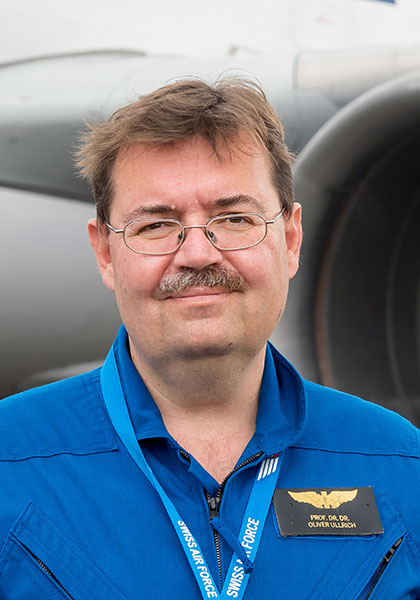A Giant Step that Heralds a New Space Age

At 9:46 p.m. local time on 31 March 2025, a Falcon 9 rocket lifted off from the Kennedy Space Center in Florida to carry a Dragon space capsule with an international crew into polar orbit, the Fram2 mission. On board: an experiment from Zurich. Cora Thiel, a senior scientist at the UZH Space Hub, had been eagerly awaiting this moment and had spent the last few weeks in her laboratory at NASA’s Kennedy Space Center preparing the cell cultures for the possible launch windows. “Years of experience in space travel have taught us how to handle challenging tasks,” she says, “even under extreme time pressure.”
But it is not only the Space Genomics research experiment that has a Swiss connection. The four-member crew of Fram2 also includes German astronaut and ETH Zurich alumna Rabea Rogge, who carried out the experiment in a low Earth orbit of 430 km. “With Rabea, the UZH research project is in the hands of an astronaut who first experienced zero-gravity as part of the 6th Swiss Parabolic Flight Campaign of the UZH Space Hub,” enthuses Oliver Ullrich, Professor of aerospace medicine and director of the UZH Space Hub.
New Space Economy accelerates research
Thiel and Ullrich hope that their “Space Genomics” experiment will provide new insights into how the structure and dynamics of the human genome adapt to the space environment. The experimental setup investigates the effects of microgravity on dynamic chromatin. Chromatin – as the organizational framework for our genetic material – controls the structure and function of our cells. The aim of the new study is to explore the possibilities and limitations of long-term adaptations at the cellular level in order to understand if and how humans can live outside of Earth’s gravity.
The experiment was set up in a matter of months, in contrast to the often lengthy preparations required for conventional missions. “In the past, in the days of 'old space', this process took many years,” confirms Ullrich. The Swiss contribution to the project is supported by the State Secretariat for Education, Research and Innovation (SERI).
Crossing disciplinary frontiers
“We are one of the few research projects selected for Fram2 that is not from the U.S., and we are the only one from Switzerland,” adds Ullrich. This proves that the UZH Space Hub is well prepared for the new space economy.

We are one of the few research projects selected for Fram2 that is not from the U.S., and we are the only one from Switzerland.
The 22 experiments that have qualified for the Fram2 polar overflight mission fall into two categories: polar research and the study of human adaptability to space conditions. One novelty is that all the experiments on board will be linked across national and disciplinary boundaries. “We can exchange samples and data and collaborate,” he says. “. This has rarely happened before with governmental space agencies so far.”
Didactic cooperation with Caribbean island nation
Another novelty is the integration of the Zurich space experiment into the regular school curriculum of Nevis, a constituent country of the federation of St. Kitts and Nevis in the Caribbean. The experiment aboard Fram2 marks the beginning of a series in which students will be able to prepare, accompany and evaluate space research together with the UZH Space Hub. “Nevis maintains an excellent standard in education and pursues a very far-sighted and sustainable development strategy,” says Ullrich.

It is precisely in the synthesis of our diverse minds, our histories, our experiences and our people that the greatest potential for discovery lies.
He is convinced that the promotion of STEM education with the inclusion of practical space research could set a precedent and serve as a role model for other countries. “It is precisely in the synthesis of our diverse minds, our histories, our experiences and our people that the greatest potential for discovery lies,” agrees Elisabeth Stark, Vice President Research of the University of Zurich.
Small countries can join the new space economy
For now, the Dragon capsule of the Fram2 mission is still orbiting the poles with its international crew. In a few days, Cora Thiel will retrieve her carefully cultivated cell cultures and the evaluation of the data obtained in the Space Genomics experiment can begin. The fact that countries with no experience in space flight, such as Malta, Norway and St. Kitts and Nevis, were able to participate in the private space mission, and that Germany was finally able to send the first female astronaut into space, represents a revolution for Oliver Ullrich.

“The mission is an important step into the new space era,” he says. In the post-ISS era – the International Space Station will be decommissioned at the end of 2029 – the use of low-Earth orbit will become increasingly important, according to the aerospace expert. In the future, fast and cost-effective access to low-Earth orbit will enable research and development in space, even for countries without a history of previous space experience.





